An exploration of a recent paper that suggests that there may not have been a single big bang, but two at the beginning of the universe.
My Patreon Page:
https://www.patreon.com/johnmichaelgodier.
My Event Horizon Channel:
Papers:
An exploration of a recent paper that suggests that there may not have been a single big bang, but two at the beginning of the universe.
My Patreon Page:
https://www.patreon.com/johnmichaelgodier.
My Event Horizon Channel:
Papers:
The current measurements of the expansion rate of the universe are in disagreement, leading to a crisis in cosmology and the need for renewed research efforts into new physics and a new model of the universe.
Questions to inspire discussion.
What is the crisis in cosmology?
—The crisis in cosmology refers to the disagreement between measurements of the expansion rate of the universe, leading to the need for renewed research efforts into new physics and a new model of the universe.
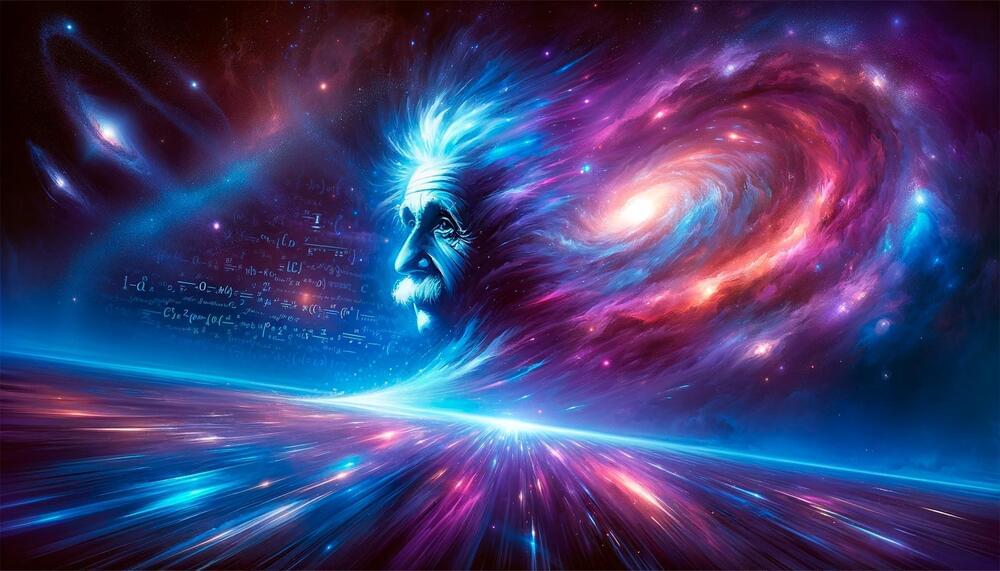
Study by the Universities of Bonn and St. Andrews proposes a new possible explanation for the Hubble tension.
The universe is expanding. How fast it does so is described by the so-called Hubble-Lemaitre constant. But there is a dispute about how big this constant actually is: Different measurement methods provide contradictory values. This so-called “Hubble tension” poses a puzzle for cosmologists. Researchers from the Universities of Bonn and St. Andrews are now proposing a new solution: Using an alternative theory of gravity, the discrepancy in the measured values can be easily explained — the Hubble tension disappears. The study has now been published in the Monthly Notices of the Royal Astronomical Society (MNRAS).
Understanding the Universe’s Expansion.
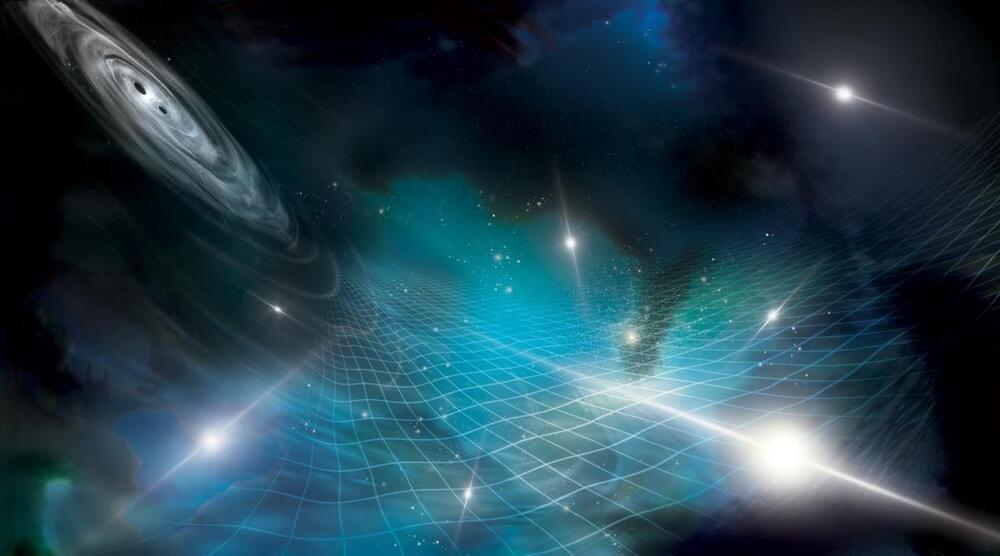
A new theory suggests that the unification between quantum physics and general relativity has eluded scientists for 100 years because huge “fluctuations” in space and time mean that gravity won’t play by quantum rules.
Since the early 20th century, two revolutionary theories have defined our fundamental understanding of the physics that governs the universe. Quantum physics describes the physics of the small, at scales tinier than the atom, telling us how fundamental particles like electrons and photons interact and are governed. General relativity, on the other hand, describes the universe at tremendous scales, telling us how planets move around stars, how stars can die and collapse to birth black holes, and how galaxies cluster together to build the largest structures in the cosmos.
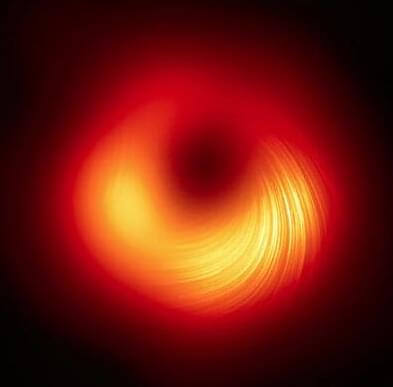
A quantum property dubbed “magic” could be the key to explaining how space and time emerged, a new mathematical analysis by three RIKEN physicists suggests. The research is published in the journal Physical Review D.
It’s hard to conceive of anything more basic than the fabric of spacetime that underpins the universe, but theoretical physicists have been questioning this assumption. “Physicists have long been fascinated about the possibility that space and time are not fundamental, but rather are derived from something deeper,” says Kanato Goto of the RIKEN Interdisciplinary Theoretical and Mathematical Sciences (iTHEMS).
This notion received a boost in the 1990s, when theoretical physicist Juan Maldacena related the gravitational theory that governs spacetime to a theory involving quantum particles. In particular, he imagined a hypothetical space—which can be pictured as being enclosed in something like an infinite soup can, or “bulk”—holding objects like black holes that are acted on by gravity. Maldacena also imagined particles moving on the surface of the can, controlled by quantum mechanics. He realized that mathematically a quantum theory used to describe the particles on the boundary is equivalent to a gravitational theory describing the black holes and spacetime inside the bulk.
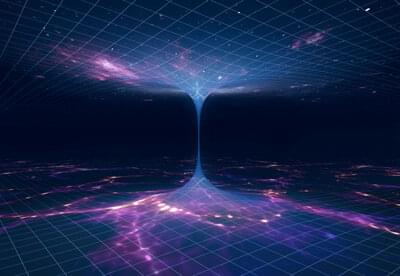
A RIKEN physicist and two colleagues have found that a wormhole—a bridge connecting distant regions of the Universe—helps to shed light on the mystery of what happens to information about matter consumed by black holes.
Einstein’s theory of general relativity predicts that nothing that falls into a black hole can escape its clutches. But in the 1970s, Stephen Hawking calculated that black holes should emit radiation when quantum mechanics, the theory governing the microscopic realm, is considered. “This is called black hole evaporation because the black hole shrinks, just like an evaporating water droplet,” explains Kanato Goto of the RIKEN Interdisciplinary Theoretical and Mathematical Sciences.
This, however, led to a paradox. Eventually, the black hole will evaporate entirely—and so too will any information about its swallowed contents. But this contradicts a fundamental dictum of quantum physics: that information cannot vanish from the Universe. “This suggests that general relativity and quantum mechanics as they currently stand are inconsistent with each other,” says Goto. “We have to find a unified framework for quantum gravity.”
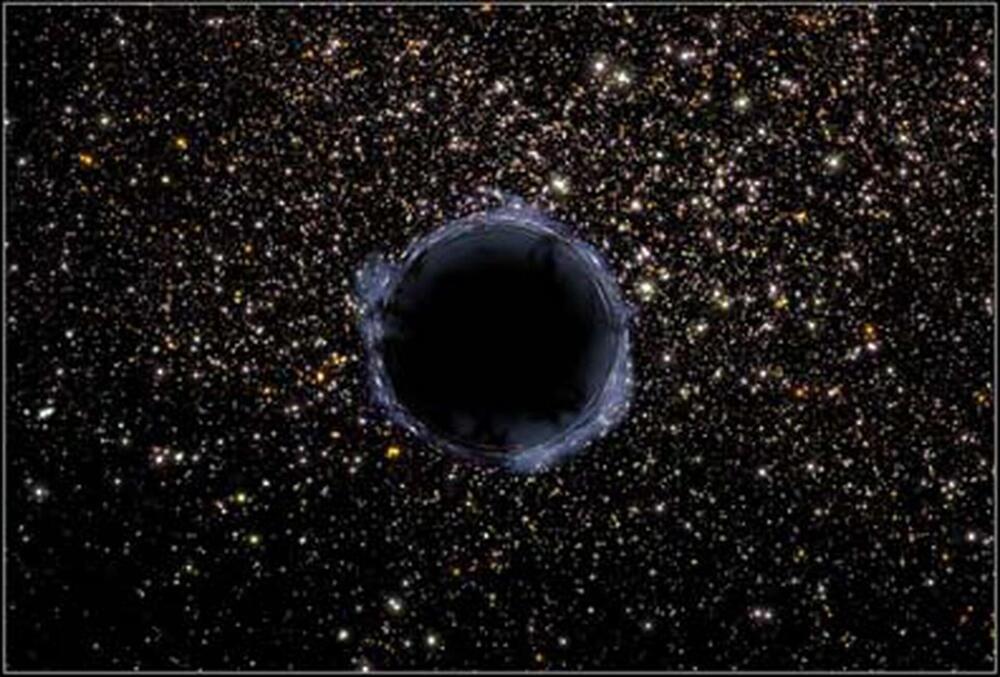
Black holes really are giant fuzzballs, a new study says.
The study attempts to put to rest the debate over Stephen Hawking’s famous information paradox, the problem created by Hawking’s conclusion that any data that enters a black hole can never leave. This conclusion accorded with the laws of thermodynamics, but opposed the fundamental laws of quantum mechanics.
“What we found from string theory is that all the mass of a black hole is not getting sucked in to the center,” said Samir Mathur, lead author of the study and professor of physics at The Ohio State University. “The black hole tries to squeeze things to a point, but then the particles get stretched into these strings, and the strings start to stretch and expand and it becomes this fuzzball that expands to fill up the entirety of the black hole.”
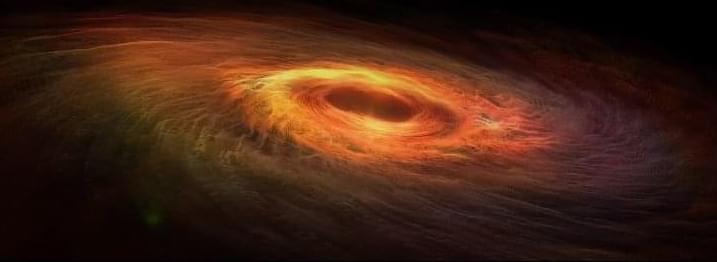
Black holes aren’t surrounded by a burning ring of fire after all, suggests new research.
Some physicists have believed in a “firewall” around the perimeter of a black hole that would incinerate anything sucked into its powerful gravitational pull.
But a team from The Ohio State University has calculated an explanation of what would happen if an electron fell into a typical black hole, with a mass as big as the sun.
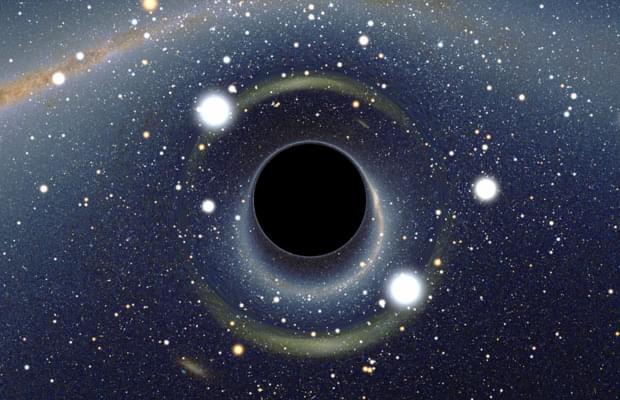
Are black holes the ruthless killers we’ve made them out to be?
Samir Mathur says no.
According to the professor of physics at The Ohio State University, the recently proposed idea that black holes have “firewalls” that destroy all they touch has a loophole.

Thought to make up 85% of matter in the universe, dark matter is nonluminous and its nature is not well understood. While normal matter absorbs, reflects, and emits light, dark matter cannot be seen directly, making it harder to detect. A theory called “self-interacting dark matter,” or SIDM, proposes that dark matter particles self-interact through a dark force, strongly colliding with one another close to the center of a galaxy.
In work published in The Astrophysical Journal Letters, a research team led by Hai-Bo Yu, a professor of physics and astronomy at the University of California, Riverside, reports that SIDM simultaneously can explain two astrophysics puzzles in opposite extremes.
“The first is a high-density dark matter halo in a massive elliptical galaxy,” Yu said. “The halo was detected through observations of strong gravitational lensing, and its density is so high that it is extremely unlikely in the prevailing cold dark matter theory. The second is that dark matter halos of ultra-diffuse galaxies have extremely low densities and they are difficult to explain by the cold dark matter theory.”